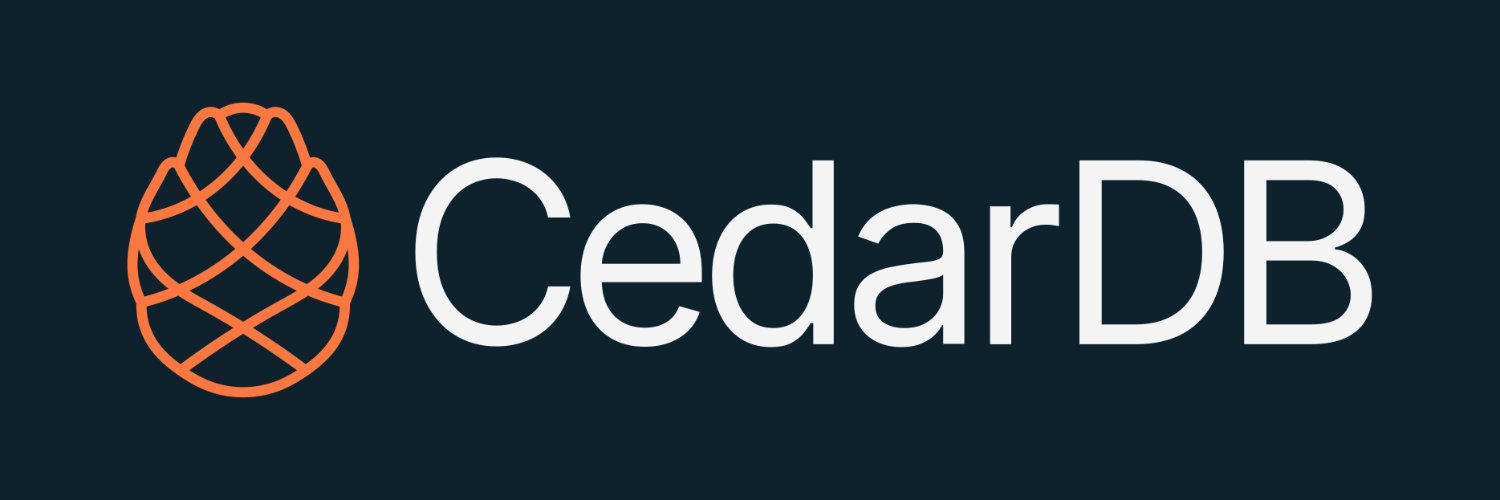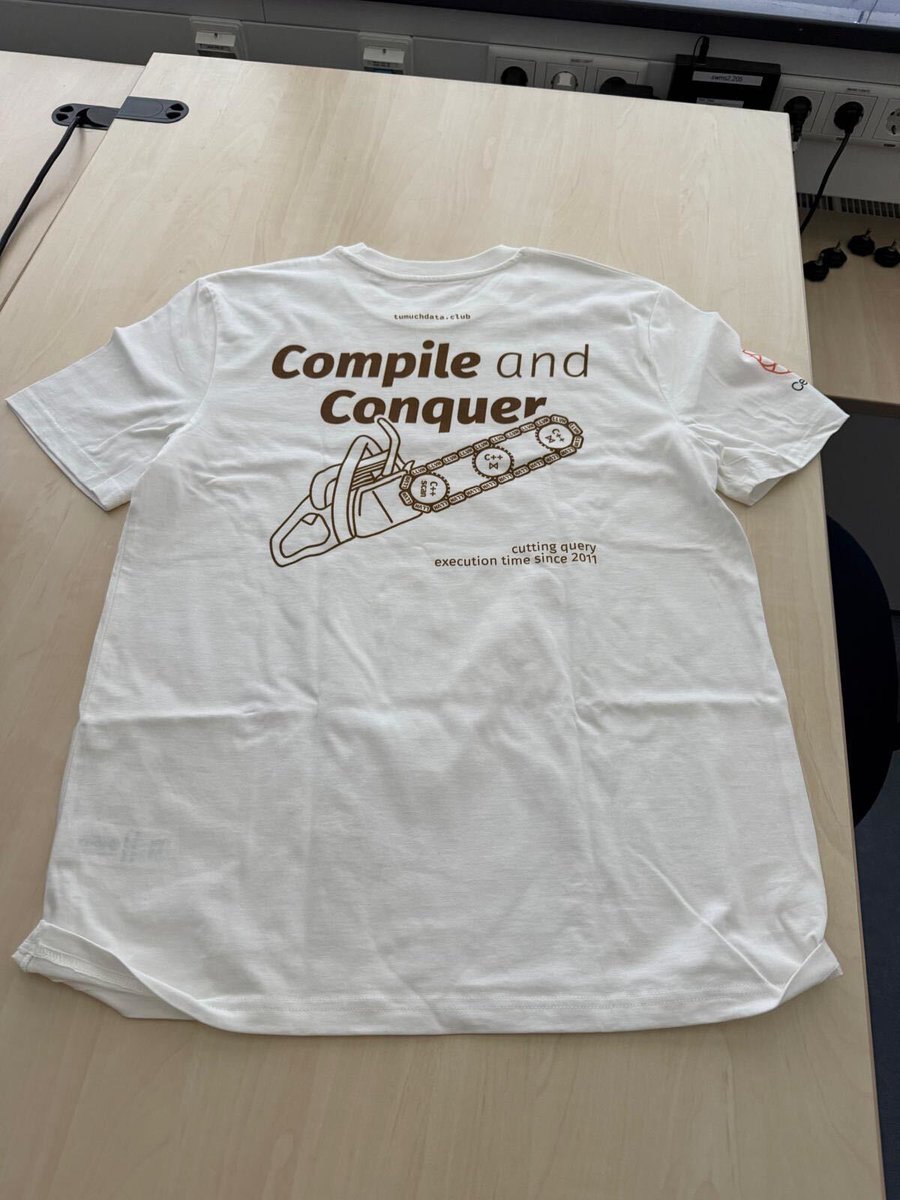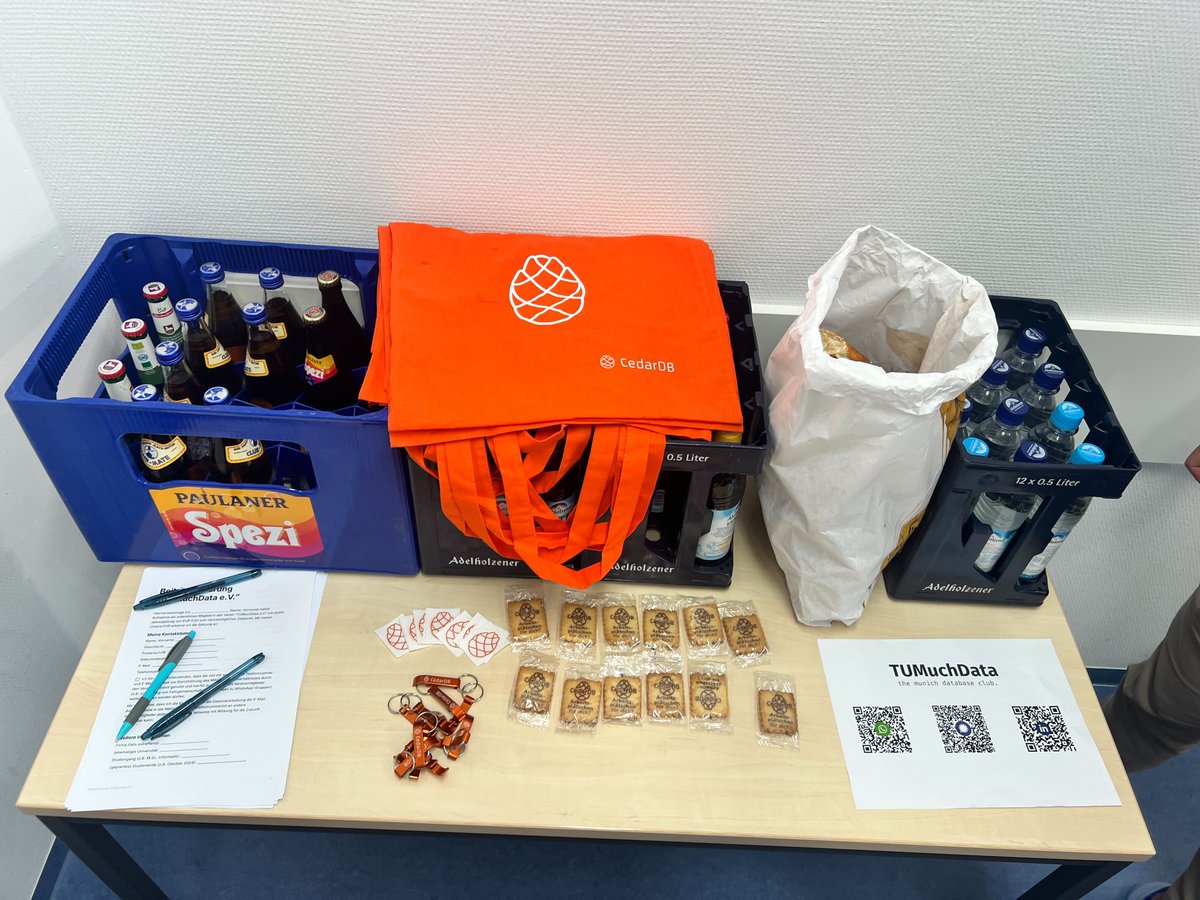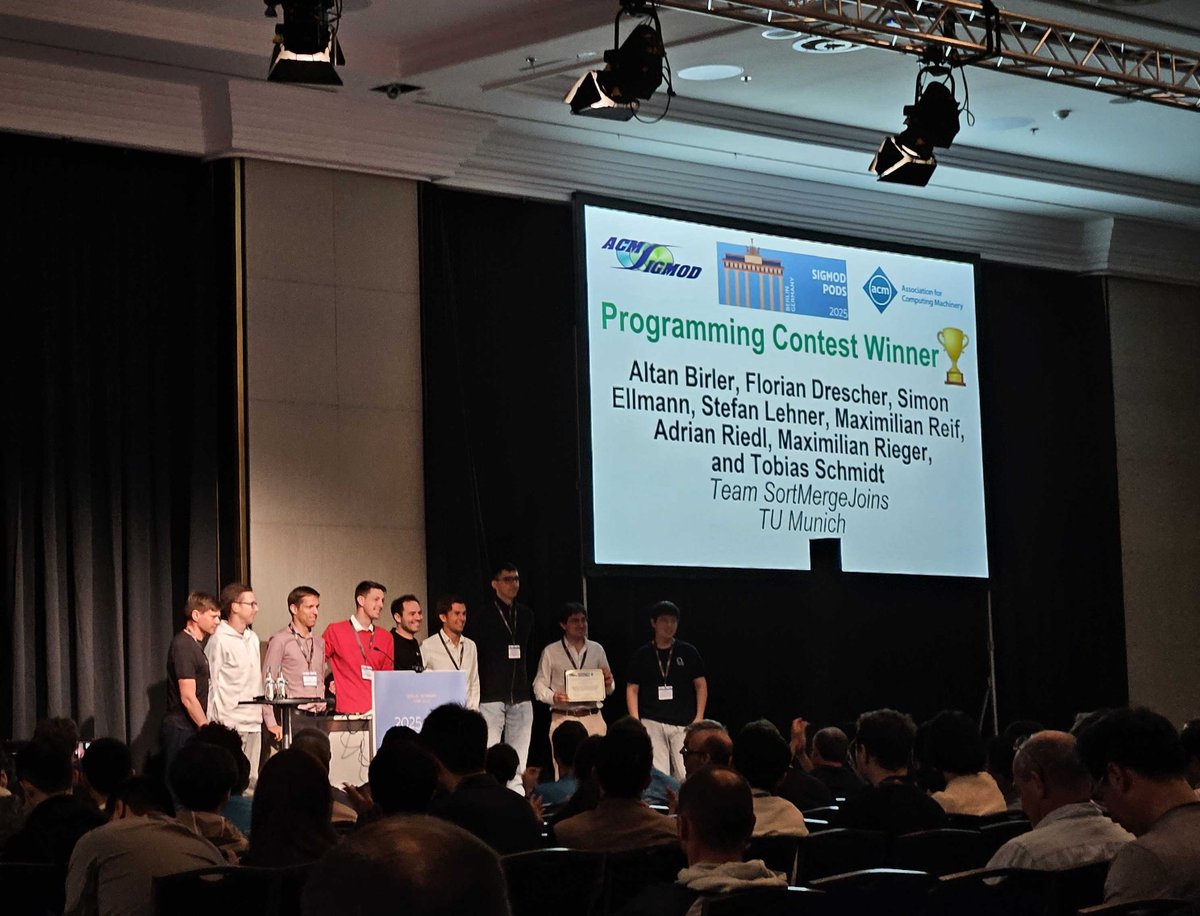
CedarDB
@cedar_db
One Database, Endless Possibilities
🎓 Supporting the next gen of database talent! We are proud to back @TUMuchData with new team t-shirts and fresh merch for their growing DB community at TUM. From research talks to Amsterdam confs, they’re repping "Compile and Conquer" in style!


"Helping Christmas Elves Count Presents" 🎁🎅 is the title of our last blog post of the year. Read how to implement vectorized overflow checking here: cedardb.com/blog/vectorize…
Leaving academia is always a big step, especially if you bring your research project with you into the real world. Read our latest post to learn what we did to prepare a research project for production workloads and what we learned along the way: cedardb.com/blog/research_…
Congratulations to SortMergeJoins from TU Munich - winners of the 2025 SIGMOD Programming Contest! Built by the Umbra research group (CedarDB’s roots), their system ran 12× faster than median - entirely open-source and no sort-merge-joins to be found 😉: github.com/umbra-db/conte…

Join us on an AI and vector-powered journey, as we explore key philosophical topics such as "Does pickled watermelon belong on a taco?", and how to search CedarDB docs using CedarDB's vector support. cedardb.com/blog/semantic_…
A great question from our Community Slack sparked this demo on spatial queries aka "finding things" with geospatial data. Check it out: cedardb.com/blog/geospatia…
CedarDB Community Edition is here! Download CedarDB Community Edition today - no paywall, no signup, just pure performance. Read more about our CedarDB on our blog: cedardb.com/blog/launch/
Many database systems claim to be compatible with PostgreSQL. But what does that really mean? Find out in our latest blog post and learn more about what it takes to become PostgreSQL compatible. cedardb.com/blog/postgres_…
You don’t need an army of C++ devs to hand-optimize every query. We let the code write the code. Read our latest blog post to see how we mix runtime flexibility with almost magical performance! cedardb.com/blog/compilati…
B-trees may be decades old, but we still use them extensively in CedarDB. Read our latest blog post to learn how to scale B-tree operations to hundreds of cores. cedardb.com/blog/optimisti…
We follow up on our past claims that fewer code branches are better in our return to blogging after our winter break. Read on to find out why branches are a burden on the CPU, and what both you and the CPU can do to avoid performance penalties. cedardb.com/blog/reducing_…
In-memory database systems were a game changer when they first came out in the early 2010s. But it looks like everyone moved back to persistent storage. We explore the history of these systems, studying their mistakes and celebrating their achievements. cedardb.com/blog/in_memory…
Have you ever wondered why you see the last entry again when switching to the second page of a website? The culprit is "offset"! Read why in our blog post and find out what to use instead. cedardb.com/blog/paginatio…
How hard can summing up numbers be? ➕ 🔢 It turns out that correctly calculating the sum of integers has more pitfalls than you might expect! Read our latest blog post for details: cedardb.com/blog/overflow_…
The underlying data layout of your program can either help or hurt your algorithms. In our latest post, we explore why optimizing the storage layout is the key to unlocking blazingly fast data processing. cedardb.com/blog/optimizin…
Having data in memory is considered the gold standard for data analysis, but are you sure that RAM locality alone is enough? Read on to learn about the new king of efficient data processing: cedardb.com/blog/reducing_…
Why old-school exceptions are still a good idea: They provide a better user and developer experience and are even faster than error values! Read more in our blog: cedardb.com/blog/exception…
SQL is a declarative language. Still, many systems require writing hand-tune SQL to get the best performance. Learn what it takes to reclaim SQL's declarative power: cedardb.com/blog/unnest_sq…
Have you ever wondered why existing database systems focus on either analytical or transactional performance? Learn why this is the case and how a hybrid storage engine can deliver high performance for combined workloads: cedardb.com/blog/colibri/
Last month, two of our co-founders (@moritzsic & @ChrisWintr) sat down with @tnachen and @ianlivingstone on the "Yet Another Infra Deep Dive" podcast, where they had the opportunity to discuss the current state of data processing and their vision for CedarDB. Give it a listen!
Will HTAP eat OLTP & OLAP? What is HTAP, anyway? Recently, @tnachen and I sat down with two of @cedar_db's co-founders (@ChrisWintr & @moritzsic) to discuss the future of HTAP, whether OLTP/OLAP can converge, and why CedarDB is the answer. podcasters.spotify.com/pod/show/yet-a…